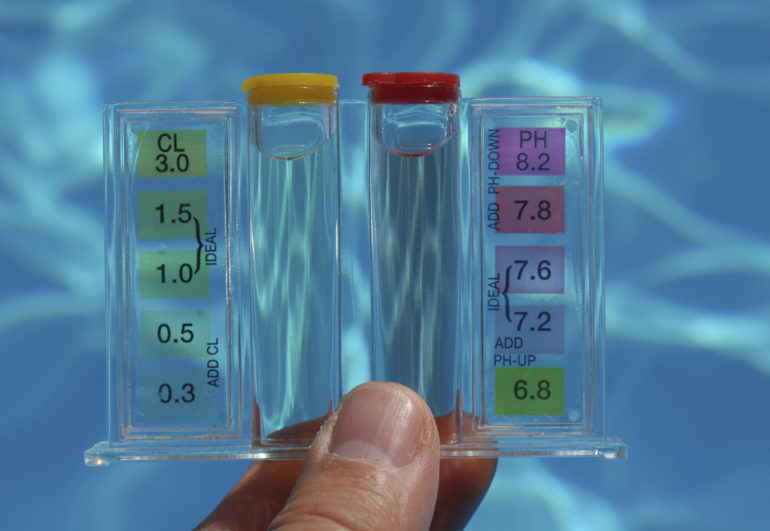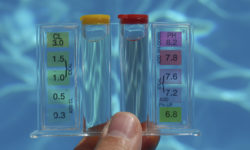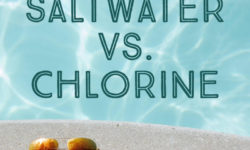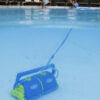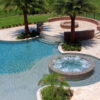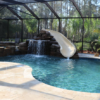Proper swimming pool maintenance is essential to keeping your pool healthy and beautiful year after year. To keep your Tampa, Tarpon Springs or New Port Richey swimming pool clean and clear, it's important to balance your pool’s chemical levels.
Good chemical balance along with good pool filtration are the keys to a beautiful, healthy pool. To help you balance your pools chemical levels, today we have for you:
5 Tips for to Balance Your Pool's Chemical Levels
1) Chlorine. Chlorine does a lot to keep a swimming pool clean. Chlorine breaks down into hypochlorous acid (HOCl) and hypochlorite ion (OCl-). Both of these compounds kill bacteria and microorganisms. The chlorine density of a pool should be kept between 1 and 3 ppm (parts per million). If it falls below 1 ppm, algae will start to grow. If it's taken above 3 ppm and it may irritate the eyes of swimmers.
Bonus Tip: Salt systems automatically monitor the chlorine density in pool water. When the level drops below the level specified in the settings, they break salt down into chlorine. Salt systems are great because they make managing the chlorine level effortless, and they also keep the chlorine level very steady compared to the old method of "shocking" a pool with liquid chlorine every week and regularly restocking chlorine tablets that dissolve into the water.
2) Low acidity. pH is the measure of the acidity of the pool water. A pH of 7 is neutral. If the pH is below 7 is the water is considered acidic. If it's above 7 is considered basic. Ideally, swimming pool water should have a pH between 7.2 and 7.6, which is slightly basic. If the pH is to low (acidic), it can damage pool equipment. If the pH is too high, it prevents the chlorine from doing its job and can stain the pool surface. To lower the pH, add muriatic acid as needed.
3) Low alkalinity impacts the pH of your pool and can damage a water heater and cause discoloration and stains. Add sodium-bicarbonate to raise the alkalinity.
4) Low calcium hardness can damage your pool surface and strip metals out of valves, heaters, and other metallic parts. To prevent low calcium levels, we recommend using Scale Free from Natural Chemistry once per month.
5) Phosphates can make their way into in your water in a variety of ways, such entering the pool with lawn fertilizer on your feet. They usually go undetected because they require a separate test to detect their presence. Phosphates can be a problem because they react with the chlorine and essentially cancel out the chlorine’s effectiveness. Phos Free by Natural Chemistry is the best way to remove phosphates from your pool. Keep your pool phosphate free by regularly using Phos Free as part of your pool chemical maintenance.
Testing the chemical levels of your pool water regularly is the only way to determine when levels are outside the optimal ranges. Therefore, it's important to test your pool water regularly. Many pool supply stores will test pool water for free. If they find anything outside the optimal range, they will recommend the exact products needed and amount of each product to bring your pool back into the healthy range.
If you are interested in a new pool or considering remodeling your existing pool, contact us at Grand Vista Pools. We've been the premier Tampa, Tarpon Springs and New Port Richey pool builder for more than 20 years.
